- Home
- Anne Rivers Siddons
Peachtree Road Page 8
Peachtree Road Read online
Page 8
We did not run wild. Aunt Willa tended her children well. She stayed out of the way of the household as she must have sensed quickly my mother wished her to do; accepted with comely murmurs of appreciation the cast-off clothing my mother found for her; smiled and accepted with grace and modest pleasure the weekly “Of course, you’ll be our guest at the club this Sunday for lunch” that Mother proffered, never failing in all the years I heard her extend the invitation to accent the word “guest”; accepted with small, real pleasure the single sherry my father poured out of the bottle he kept on the liquor tray in the library, each evening before Martha stumped in to announce dinner; kept her children out of sight of the adults except when they were washed and brushed and dressed and drilled to come and murmur their polite hellos and thank-yous to my parents…and she learned.
She learned prodigiously and constantly, by rote, through her pores and fingertips, with a wary animal’s untutored cunning, how to become a woman to match the house. Within a year, by the time World War II had taken our minds off slow and graceful rituals and taken many of the men from the great Buckhead houses, she had largely accomplished her mission. My father, whose blood pressure and flat feet kept him out of the army, remarked and applauded the sea change. Even my mother, whose shuttering lashes concealed the eyes of a harpy eagle, could find in Willa by that time little of the awkward, vulgar, overdressed, rankly sexual young woman who had alighted in her foyer a year before. Reluctantly, and at my father’s insistence, she began to introduce my aunt Willa into the sanctity of her garden club, bridge circle and a few selected lesser charities. It was, in retrospect, a stunning achievement. What it cost Willa Slagle Bondurant might never have occurred to me if I had not seen so clearly and with such a palpable shock the living adder of hatred that had stirred in her eyes on the night Lucy first ran away, when my mother had bidden her to come upstairs and be dressed in the first of a long succession of cast-off garments from the closet of her enemy.
Now, even more than ever, tides ran through that house that I sensed had the power to capsize and sink us all, deep-running tides that obeyed some great moon whose name I did not know. I don’t know if the adults in the house were aware of them, though on some level I think they must have been. How could they not be, when all three of them seemed involved in some slow, formal, highly stylized waltz of manners? The oblique looks sent and received, the silences spun out at meals and over cocktails, the conversations that seemed freighted with some import far weightier than their actual words merited, the laughter that rang, to me, utterly false. Sometimes it seemed to me that a kind of crazy power shimmered loose in those rooms like a haze of lightning, seeking a place to come to rest.
I don’t know why my father smiled so benignly on my aunt Willa, especially in the presence of my mother; it was totally alien to him to notice, at least openly, other women. Revenge on the will-o’-the-wisp brother and the wife gone cold? Simple lust? I don’t know why my mother, noticing it, smiled her secret smile and drew the shutters of her lashes down over her eyes. This new arcanum of theirs was as unfathomable to me as the old legerdemain had been. I do know now, and I suppose I sensed then, what my aunt Willa was about. Of them all, she was the simplest, the most direct, the least oblique. It should have made me easier in her company, but it did not then, and it does not now.
Lucy felt the subterranean surges as keenly as I did, but being vastly more at home with nuance, simply shrugged her thin colt’s shoulders and said, “Don’t pay any attention to them. If they think you think they’re actin’ funny they’ll get all over you.”
And so, on the main, I didn’t. That spring was altogether too dazzlingly, burstingly full of Lucy.
The bond that had leaped into life between us that first evening in the foyer deepened steadily. On the surface, I suppose, our temperaments could not have seemed more divergent: I was shy where she was gregarious; cosseted where she was, of necessity, used to fending for herself; physically clumsy and crippled by asthma (and my mother’s fear of those terrible clawing, choking attacks) where she was bird-slender, swift and agile; timid where she was fearless. But our needs and hurts met and knew each other with absolute fidelity. Both of us bore the indelible stigmata of difference. Both of us knew the terrible, unpayable penalty, in our small worlds, of our essential inability to adhere to the rules. This kinship made her, to me, irresistible.
And then, there was her beauty. It was clear from the outset that both my aunt Willa and my mother greatly favored Little Lady and young Jamie, but I could never understand why. To me, my cousin Lucy was by far the most interesting and beautiful creature I had ever encountered.
There was a light, an aura, a sort of halo, like streetlights sometimes wear in mist, that lay at times around Lucy Bondurant. I saw it that first evening, and it did not fade for me until the end of her life. She drew eyes to her, even in the company of rose-gilt Little Lady, who was a much more conventionally pretty child. Lucy’s looks were, I heard my mother say once, her mother’s looks, the Slagle woods-colt looks. Blond Little Lady and Jamie, on the other hand, were obviously Bondurants, icons of the vanished Jim. Perhaps that was the reason my mother was cold to Lucy from the first, as cold as she was to Aunt Willa, while she was warmer, if not affectionate, to Little Lady and Jamie. And maybe it was because Lucy was, from the beginning, too vivid, too alive, too much, for the eminently proper mistress of the house on Peachtree Road.
Lucy was animated, vibrant; life seemed to brim and leap in her so that her transparent skin could scarcely contain it. All her life, the small blue pulses that beat in her throat and temples seemed to me to be the drums of a sort of special vitality, which she possessed in greater measure than most mortals. Her laugh was rich and deep and almost bawdy, and she found things funny that would and did terrify most children of her age, and horrify most adults.
She was ferociously bright, possessed a quirky, silver fish intelligence that soared and looped and doubled back upon itself; her mind described its own windborne ballet, which few people in her life but I ever really followed. She was an accomplished and amusing liar, telling herself and whoever would listen wonderful, towering, complex tales of intrigue and adventure, in which she was perpetually the rescued heroine, the saved damsel in distress. She was a dreamer, a firebrand, a small poet, a great reader. She taught herself to read when she was three, and by the time she came to us had spent a great deal of her life in trees and under back porches in the various mean homes Uncle Jim and Aunt Willa inhabited, lost and safe in books beyond her age but not her ken.
As that spring swam into and through summer and toward the crisper hummock of autumn, I was as nearly totally happy as I have ever been in my life, and perhaps will ever be again.
Who could not love Lucy?
On an autumn evening when it had just turned cool enough to have a fire in the library when we gathered for drinks there, my aunt Willa came into the room a little later than usual, and I saw my mother lift her head and flare her nostrils, as if she smelled on a faraway wind something sharp and alien and dangerous. Aunt Willa looked especially pretty to me that night. Her cheeks were pink with a stain that had not come from her rouge cake, and her jewel-blue eyes were very bright. She had on a dress I had never seen before, a very plain, soft blue wool which fitted her beautiful body like water, but not, as the clothing she had brought with her from New Orleans had, like paint. The difference was enormous. I could see it in my mother’s eyes, and my father’s.
“I have something to tell you all,” she said, her voice lilting out of its flatness with practice and excitement. She did not sound at all like the woman who had first come to our door. We looked at her silently.
“I have gotten myself a job!” she said, and broke into laughter, a small gurgle of pure pleasure. “I am, as of right now, a saleswoman in Better Foundations at Rich’s. I start in the morning, and I’m going to be making twenty dollars a week, with benefits and an employee discount. Now what do you think of that?”
/> We stared at her, all of us. My mother spoke first.
“You certainly didn’t have to go and get a job selling corsets to God knows who, Willa, not to mention all my friends. You know that it’s been my…our…pleasure to share what we have with you.”
Aunt Willa’s smile wrapped my mother in light and venom.
“I’ll never forget your generosity, Olivia,” she said, in her new, many-leveled voice. “But my mama used to say that sooner or later every tub has to get on its own bottom. And it was time for me to get on mine. I could not impose on your and Sheppard’s generosity any longer.”
I goggled. I had never heard her mention a mother, a life of any kind, before the one she had shared with my uncle Jim.
“I know you mean well, Willa, but you need to consider how it will look, your going to work, when you’re living in your own family’s house….” My mother paused delicately, and smiled. There was no warmth in it.
“What Olivia means is that her friends in the Junior League will think that we made you go to work,” my father said, getting up from his big leather chair with his whiskey and coming across the faded Oriental to kiss Aunt Willa wetly on the cheek. “Don’t pay any attention to her. It shows a lot of grit and gumption, and I’m proud of you. Besides, it’s a mighty pretty bottom that tub of yours is sitting on.”
Lucy and I looked from one to another of them, still mute with surprise and interest and that back-of-the-neck radar with which children are necessarily endowed, which tells them to be silent or risk peril. Aunt Willa smiled, her lashes down over her blue eyes, but she said nothing, and neither did my mother. But her dark eyes blazed up as if kerosene had been dashed upon a fire, and I felt, rather than heard, the great ponderous grinding of a shift in the balance of power.
CHAPTER THREE
Is that thing real?” Lucy whispered loudly to me, over the cicada-buzzing and giggling, in the Camerons’ back garden, of a small group of children.
We were seated on folding bridge chairs in a semicircle in the paved rear courtyard, watching tall, black Leroy Pickens lope in circles holding a tether, on the other end of which trotted a very small, tarted-up Shetland pony with a monkey astride it. The monkey’s owner, a swarthy, gypsyish young man with a full mustache and a rakish red bandanna, watched suspiciously from the edge of the formal boxwood maze. The white sun of August burned into small necks and arms, and wilted starched organdy and dotted swiss; the handful of adults had long since retreated to white wooden lawn chairs under the pergola roof, where small Glenn Pickens, Leroy’s son, his red tongue protruding from between his white teeth, passed a tray of Tom Collinses.
“What do you mean, is it real? Is what real?” I whispered back, in rare annoyance. For the last hour or so, Lucy had been acting as sulky and obdurate as the prim, evil-eyed pony. I did not know what was the matter with her, and was vaguely embarrassed and angry, because I had wanted this small society to be as enchanted with her as I was, and thus envious of me. Before she came, there had never been any cause for that.
“That stupid pony,” she said, not bothering to lower her voice. “And that stupid monkey. They must not be real. All they can do is run around in a circle.”
Heads turned to look at us, including those of my parents and her mother, and Ben and Dorothy Cameron. Ben winked at us, and Dorothy’s smile wrapped us both in warmth and favor. No one from the Peachtree Road house smiled or winked. My father looked blank and formal, and my mother smiled the small, superior smile she kept strictly for Aunt Willa and her children, and Aunt Willa herself, diaphanous and splendid in white voile and a big-brimmed, flower-trimmed hat that had Rich’s Wood Valley Shop written all over it, glared at Lucy out of eyes gone ice-white with anger. Ben Cameron, Junior, my age and as copper-haired and freckled as his father, glared at her too, but Sarah, his sister, whose sixth-birthday party it was, blushed furiously, and her golden-amber eyes filled with tears. Lucy ignored all the looks and began to scratch absorbedly and ostentatiously at a mosquito bite on her elbow.
The monkey did a somersault on the pony’s back, and the children, Lucy excepted, all clapped and cheered.
“Don’t be dumb,” I said furiously between my teeth. “Of course they’re real. Haven’t you ever seen a pony or a monkey before?”
“Just about a million times,” Lucy said boredly, but with red rising smartly in her neck and cheeks, and her blue eyes narrowing. “I had a pony and a monkey both when we lived in Charlotte. My daddy got them for me. Nobody else but me could play with them. They could do lots more stuff than run in circles. That’s why I thought those weren’t real.”
I knew then that she had, in fact, never seen a Shetland pony or a monkey before, and that the wonder of seeing them was, for her, murdered by the fact that it took place in the garden of, and at the party of, another little girl who was a figure of some unknown but real importance in my life. For when we had rounded the sun porch to the back garden where the party was beginning, small Sarah Cameron had run up to me with her wide, incandescent smile and her sherry eyes glowing like candles, and her mother had hugged me with the easy warmth and affection that she lavished on all of us. Lucy, who had been gleaming and chattering all morning in anticipation of the party, began to go quiet then. That the cold wings in her eyes were not those merely of envy, but of a kind of fear, was a precocious insight for a seven-year-old boy to have, but from the beginning there was little about Lucy that I did not ken. My anger faded and I took her hand. I did not have words to comfort her, but I knew that my touch usually had the power to dispel whatever demons were threatening her.
A shadow dropped down over us, and Ben Cameron squatted beside us, rocking on his heels, gray Scot’s eyes and red hair giving back the sun in splendor. He was a tall man, younger than my father, wiry and knotted with an athlete’s muscles, and he wore white duck pants and white shoes and a blue, open-collared shirt with the sleeves rolled up his prodigiously freckled forearms. He had, for some reason, a striped necktie knotted around his waist. I thought he looked wonderful, gay and accessible. He put his arm around Lucy’s shoulders and smiled his magical smile into her face, and after a wavering moment she smiled back.
“Everybody knows Charlotte ponies and monkeys are the best in the world,” he said. “These are just in training to get good enough. When they shape up, we’re going to ship them off to Charlotte. I bet they won’t ever be as good as your pony and monkey, though.”
Lucy looked up at him through her inky lashes and smiled, and was, at that moment, pure Willa.
“No,” she said.
The clouds rolled off her face then, and for the rest of the afternoon she was the center of the group, darting in and out of the shrubbery and woods playing hide-and-seek, pinning the tail on the donkey with sure, swift grace, spilling as much ice cream as anyone else on the elaborately ruffled Rich’s frock Aunt Willa had brought home for this, her daughter’s debut into the small society of junior Buckhead.
She had met one or two of the neighborhood children over the spring and summer she had been with us, but this was the first group she had been in, and it was not a large one. Though we ran with a much larger pack of children at E. Rivers Elementary School, on the corner of Peachtree Road and Peachtree Battle Avenue, during the fall and winter, none of the young of those golden roads and houses saw much of one another in hot weather. Polio stalked the canyons of Buckhead as relentlessly as it did the warrens of Cabbagetown and Vine City in those long, deadly summers, and the fear of it was never out of anyone’s mind. My friend Pres Hubbard, who lived on Chatham Road, had gone white and quiet one afternoon several summers before, and complained of a headache, and the next day he was in Crawford Long Hospital in an iron lung. Pres was lucky. He walked now with a heavy iron brace, but he walked. Alfreda Slaton’s small sister had died two years ago of infantile paralysis.
By the time some of the red anger began to go out of the afternoon and the adults put down their tepid glasses and rose to leave, Lucy had, with her phy
sical daring, her infectious laugh and her light-spilling blue eyes, gathered a crowd around her that would, with some defections, remain there until high school. I had heard her say more than once that afternoon, “Hey, I know a story,” and seen them all—Freddie Slaton, Snake Cheatham, Tom Goodwin, Charlie Gentry, Pres Hubbard, even young Ben Cameron—gather close around her. Only Sarah Cameron did not succumb, pressing close to her mother’s side, her huge eyes shadowed and grave on Lucy. I was as proud of Lucy in that moment as I have ever been. She was a hit, and she was mine. Vindication ran sweetly in my veins.
But that night she had one of her terrible nightmares, and after Martha Cater had soothed her wild crying and sponged the sour sweat of panic off her and settled her back in her bed and gone back to her own room, leaving Mickey glowing staunchly from the baseboard of Lucy’s cubicle, she came and slid into my bed with me.
“Hey, Gibby,” she said—for she had begun to call me that immediately upon finding that my middle name was Gibbs—“are you awake?”
“What do you think, after all that?” I said. I moved over toward the wall to give her room, and she burrowed against my side like a small animal.
“What were you dreaming?” I asked.
“I dreamed…that I went over to the Camerons’ house to play and I went inside and it was dark, and I couldn’t find anybody, and then I heard them in back and I went back there and they were all there, grinning at me and holding out their arms to me…but, Gibby, they were all…dolls.”
“Dolls?” I could not imagine what there was in the image of toys that would set Lucy to shaking and screaming, but the fine tremor still had not completely gone out of her arms and legs against mine, and her tear-thickened voice was not completely steady.

 Colony
Colony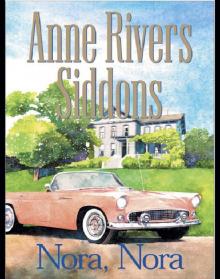 Nora, Nora
Nora, Nora House Next Door
House Next Door Homeplace
Homeplace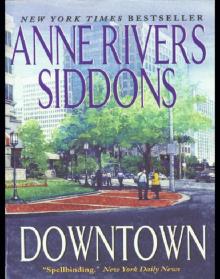 Downtown
Downtown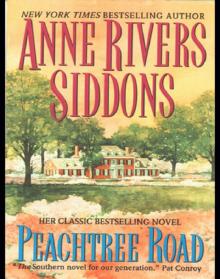 Peachtree Road
Peachtree Road Sweetwater Creek
Sweetwater Creek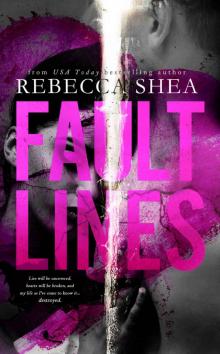 Fault Lines
Fault Lines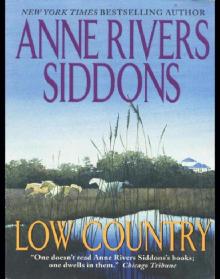 Low Country
Low Country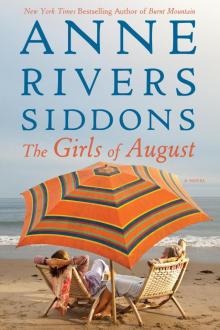 The Girls of August
The Girls of August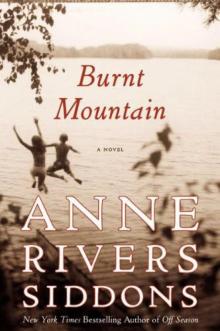 Burnt Mountain
Burnt Mountain Islands
Islands